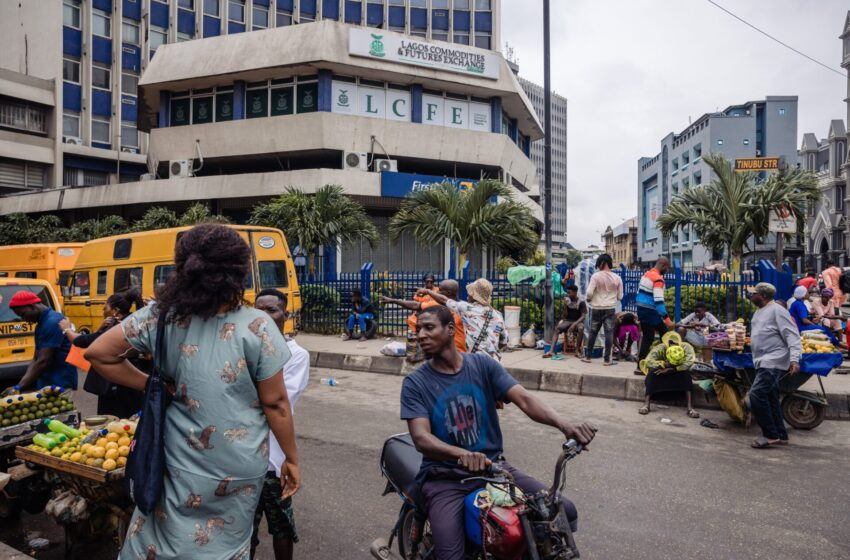Exploring Nigeria’s investment landscape: Challenges, opportunities, and future prospects

Nigeria
According to the World Bank, there are currently 685 million people, mostly from developing nations, currently living in extreme poverty, and their economic conditions are exacerbated by high food and energy prices.
In Nigeria, headline inflation rose to 27.33 percent in October 2023, an increase of 0.61 percentage points when compared to September 2023.
In the same month, food inflation recorded another high as it attained 31.52 per cent on a year-on-year basis, a 7.80 per cent points higher compared to the rate recorded in October 2022 (23.72 per cent). With crude oil production not consistent, while exchange rates continue to plummet, there’s a huge task before the government at all levels to promote inclusive growth.
One of the most pressing concerns is the country’s significant infrastructure deficit. Inadequate power supply, limited transportation networks, and the absence of basic amenities pose substantial obstacles to smooth business operations. Addressing these gaps often requires additional investments or partnerships, adding complexities for foreign investors entering the market.
Another hurdle lies within Nigeria’s regulatory environment, historically perceived as complex. Foreign investors often face difficulties navigating the labyrinth of obtaining permits, licenses, and compliance with state and local regulations. Recent reforms aimed at improving the ease of doing business in Nigeria have shown promising signs, but issues persist, demanding a careful approach by potential investors.
Insecurity in certain regions further complicates matters, necessitating appropriate risk assessments and stringent security measures to safeguard business operations. Moreover, limited access to finance, characterised by insufficient capital and high borrowing costs, presents a hurdle for both local and foreign investors. Despite government efforts to improve access through initiatives and partnerships, this remains a pressing concern.
Nigeria stands as a beacon of opportunity for foreign investors, yet navigating its intricate market comes with multifaceted challenges. Investment fell to $468 million in 2022 from $698 million a year earlier, the National Bureau of Statistics said in April 2023.
Amidst these challenges, Nigeria offers significant opportunities for foreign investors. The government’s push for economic diversification away from oil dependency has opened doors in sectors such as manufacturing, agriculture, technology, renewable energy, and infrastructure. Investors with expertise in these areas find promising prospects within the Nigerian market.
Although the recent monetary policy reforms have raised questions about economic stability, the government’s commitment to reforms and attracting foreign investments through transparency measures and economic programmes should mitigate short-term volatility.
Government policies and regulatory reforms significantly influence investment decisions. Clarity, consistency, and transparency in policies are crucial for attracting foreign direct investments (FDIs). Continued efforts to streamline regulations, expedite infrastructure development, maintain policy consistency, and enhance access to finance are necessary for a more favourable investment climate.
The Nigerian business landscape, primarily driven by small and medium-sized enterprises (SMEs), faces challenges, notably limited access to finance. The new administration must create an enabling environment for financial institutions to offer accessible and affordable credit facilities tailored to SMEs’ needs, potentially through dedicated funding programmes and collaborations.
Adapting to economic and political climates remains crucial for sustained growth. Understanding market dynamics aids in adjusting portfolios during uncertainties, ensuring resilience amidst changing landscapes. Moreover, navigating global trade dynamics necessitates partnerships, local value addition, technological innovation, and advocacy for fair trade policies.
For example, Honeywell Group, a leading investment holding company with a legacy spanning 50 years in Nigeria, strategically evaluates sectors ripe for investment. Opportunities in natural minerals, real estate, hospitality, energy, and technology show immense growth potential within the Nigerian market. The group employs diversification strategies across these sectors to hedge against inflationary pressures.
Recent economic indicators, despite transitions and uncertainties, demonstrate Nigeria’s resilience. With a GDP growth rate of 2.51% (year-on-year) in Q2 2023, the economy reflects diverse sectoral
strengths that can weather fluctuations and changes in leadership.
Understanding Nigeria’s investment landscape demands astute navigation of challenges, leveraging opportunities, and adaptive strategies to ensure long-term success in this dynamic market.
By Clifford Egbomeade




